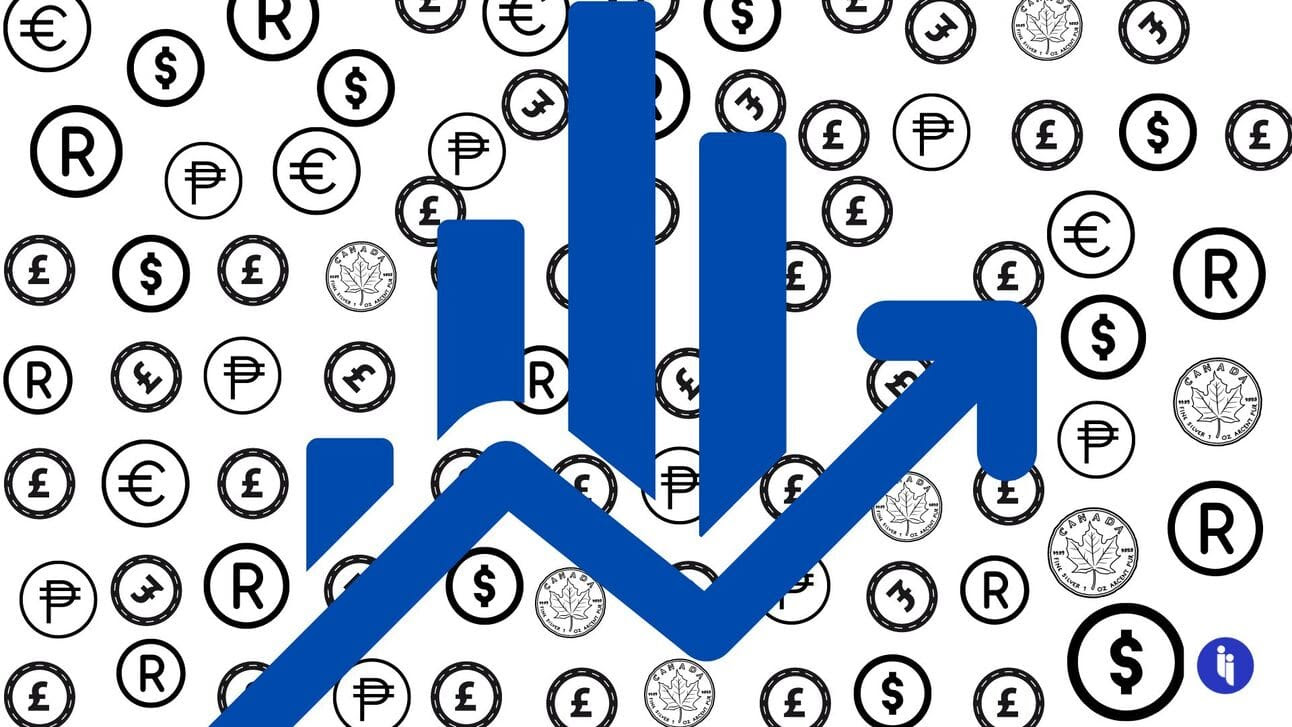If you close your eyes and picture an old-school trading floor, you can almost feel the chaos — the trades lost, the prices shouted, the egos stroked. But despite all that thrill, markets really want nothing more than to anticipate events.
When European Central Bank (ECB) chief Christine Lagarde finally announced a rate cut yesterday (Thursday), the markets were at ease. The quarter point cut – the bank’s first since 2019 – was widely telegraphed, so markets had priced it in.
But as we waded through Lagarde’s remarks, her analysis pointed to a theme close to our hearts: geopolitics 🤗. Lagarde, a former IMF chief and French finance minister, said the Ukraine-Russia and Israel-Hamas wars – plus trade tensions – were keeping things “tilted to the downside over the medium term.”
Stay on top of your world from inside your inbox.
Subscribe for free today and receive way much more insights.
Trusted by 99,000+ subscribers
No spam. No noise. Unsubscribe any time.
Why?
On the war front, there’s been talk of peace but – for reasons Intriguers will know – that talk isn’t new, and the fighting continues. In fact, you could say it’s escalated – the Houthis have now expanded their commercial shipping threats to the Mediterranean and Arabian seas, and there are claims Russia’s monthly casualties are now higher than when it first invaded.
And as for trade, countries slapped 3,000 new restrictions on each other last year (five times the 2015 number) while trade in goods shrank by 2%, the sharpest drop this century outside a global recession.
Throw in the biggest election year in history, with two billion eligible voters throwing curve-balls across 80+ countries, and you get a sense why pricing it all into an excel spreadsheet is so tricky.
So as we approach this year’s halfway mark, let’s take a quick look at how the markets have reacted to some of the action.
- Elections
- Mexico:We knew the left-leaning ruling party’s Claudia Sheinbaum would win, but her margin was a surprise. And her party now says it’ll push reforms that investors fear could lead to more state meddling and less checks on power. The result? A 5% crash in the peso.
- India:Voters surprised us by eroding rather than expanding Modi’s majority. And unlike in Mexico, folks fear Modi won’t push reforms that investors do want. Plus, losing his majority has clipped his CEO vibes, likely limiting his spending. The result? A year’s stock gains gone in a day.
- South Africa:Polls saw the ANC party’s historic majority loss coming, but that still just tossed us forward into unchartered territory. Coalition talks kicked off formally on Tuesday across a very broad ideological spectrum, a week after voting day. The result? The rand dropped 0.7%.
- UK: The timing of the PM’s July 4th election call was a mini-surprise, but the ‘meh’ response from markets suggests it was merely a slight rescheduling of what they’ve already priced in: a new prime minister.
- US: And markets everywhere – across bonds, currencies, and beyond – are struggling to price in November’s presidential elections between two very different visions for the world’s main superpower (ps – we’ll be launching a regular new Intrigue briefing soon to help you track this).
- Interest Rates
Meanwhile, central banks might set their own rates but the ripples can go global. And markets, eager to price that in, have grown frustrated with banks hinting at cuts then tapping ctrl-z when inflation persists – markets want those sweet, sweet low rates, which can encourage more deal-making, borrowing, and buying.
And that brings us back to where we started:
- Lagarde has warned not to expect more ECB cuts in July, as inflation looks like it’ll remain above the continent’s 2% target for the year.
- Canada’s central bankjust became the G7’s first to cut rates this cycle, though it warned it can’t diverge too much from the Fed, lest cash rush south in search of those sweet, sweet returns. And that takes us to…
- The Fed: it’s at least months away from cutting rates (sticky inflation), while across the pond, the sooner-than-expected elections mean the Bank of England will likely wait until later this year before it cuts rates.
So there you go: our world can undershoot, overshoot, or shoot expectations. But the market can still find a reason to flip out, and some of the markets above still went on to recover losses once the dust settled. So maybe a takeaway here is that Ken Fisher was right: “time in the market beats timing the market”.
INTRIGUE’S TAKE
Another lesson you could draw is that polls and markets, while still sources of valuable information, are inadequate forecasting tools on their own.
That’s partly why governments invest heavily in their own forecasting capabilities. For example, the US Defense Advanced Research Projects Agency (DARPA) emerged in response to the Sputnik surprise of 1957. And IARPA (like DARPA but for intelligence rather than military use) emerged after the September 2001 terrorist attacks. Both organisations look at forecasting tools, among other things.
IARPA has been doing some really interesting research, including multiple long-running geopolitical forecasting tournaments. The findings? i) Folks can get better with experience, ii) crowd-sourced forecasts can outperform individual experts, and iii) those two factors combined (ie, pooling the best forecasters) can produce significantly more accurate results.
So yes, there’s good information out there, driving good forecasts. You just gotta know who and what to trust.








